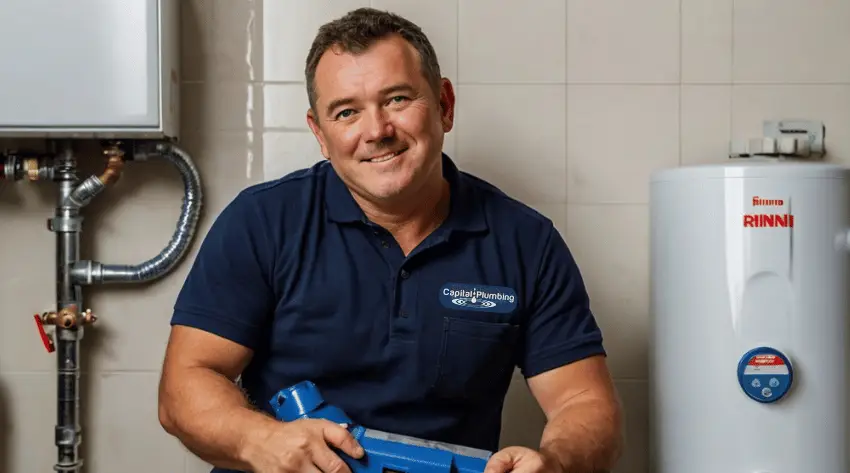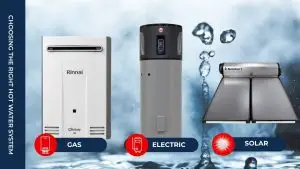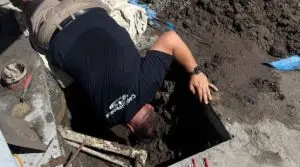How to Keep Your Gas, Electric, or Solar Hot Water Flowing Smoothly
Your hot water system is one of your home’s most important (and used!) appliances — but it’s easy to forget about it until something goes wrong.
If your hot water system isn’t working properly, it can lead to cold showers, rising energy bills, and expensive emergency repairs. Regular hot water servicing keeps your system running efficiently, safely, and can even extend its life by years.
In this easy guide to hot water servicing, you’ll learn how to spot early warning signs, do some easy DIY checks, and know when it’s time to call a plumber.
Signs Your Hot Water System Needs a Service
Gas Hot Water Systems
- Pilot light keeps going out
- Water takes longer to heat
- Strange smells (especially gas)
- Water temperature constantly changes
- Hissing or popping noises from the unit
- Higher-than-usual gas bills
Electric Hot Water Systems
- Water never gets hot enough
- Hot water runs out quickly
- Rusty or dirty water coming from taps
- Crackling or banging sounds from the tank
- Spikes in electricity bills
Solar Hot Water Systems
- Water stays cold even on sunny days
- Backup booster running more often than normal
- Leaks or puddles near panels, pipes, or the tank
- Dirty, cracked, or blocked solar panels
- Drop in hot water pressure
How Often Should You Service Your Hot Water System
Gas systems: Every 1–2 years
Electric systems: Every 2 years
Solar systems: Every 2 years (plus clean your panels once a year)
Brands like Rinnai, Rheem, Aquamax, Bosch, Dux, and Vulcan all recommend regular servicing to keep your system under warranty and working at its best.
Quick DIY Hot Water System Checks
(Important: If you’re unsure about anything, it’s always safest to call a licensed plumber.)
Gas Hot Water Systems
- Check if the pilot light is on — if not, safely relight it using the manual.
- Listen for unusual sounds from the burner.
- Inspect the base for leaks or corrosion.
- Smell around connections — if you smell gas, call a plumber immediately.
Electric Hot Water Systems
- Test the TPR (Temperature and Pressure Relief) valve by lifting the lever — you should hear water running into the drain.
- Look for any water pooling around the tank.
- Listen for sizzling or hissing noises.
- Check your circuit breaker to make sure the unit still has power.
Solar Hot Water Systems
- Inspect solar panels for dirt, cracks, or shading.
- Check pipes and insulation for leaks or damage.
- Watch if the booster is kicking in too often (this could mean the panels aren’t working properly).
- If you have a controller display, make sure no error codes are showing.
When to Call a Plumber
Contact a professional plumber if you notice:
- Visible leaks, cracks, or corrosion
- Hot water still not working after DIY checks
- Strange banging, crackling, or popping noises
- Low hot water pressure
- Brown, rusty, or discoloured water
- A system that’s over 8–10 years old and hasn’t been serviced recently
- Signs of gas or electrical issues
A licensed plumber will:
- Perform full safety and performance checks
- Test and replace the anode rod (to prevent tank rust)
- Flush the system to clear sediment buildup
- Check and adjust thermostats and valves
- Inspect and fix any pressure or pipe issues
A simple service today can prevent major problems (and big repair bills) tomorrow!
Final Thoughts
Taking care of your hot water system doesn’t have to be complicated.
A few quick DIY checks, combined with regular professional servicing, can keep your hot water flowing reliably — and save you a lot of money on energy bills and repairs.




